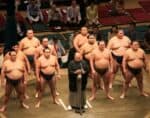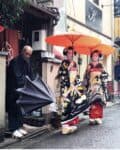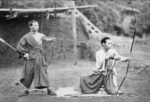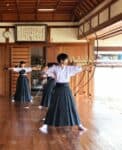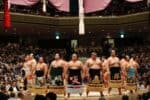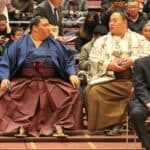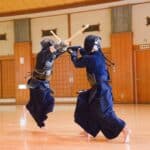There are some long-held traditions preserved within sumo wrestling that date back centuries. Japan is the only country where the sport is practiced professionally, it’s also considered a national sport. Life as a sumo wrestler is highly regimented and as such, they sacrifice many personal liberties.
So can sumo wrestlers marry? Yes, sumo wrestlers can get married. Only the top 10% of sumo wrestlers are likely to get married. Once they reach this level in their career, sumo wrestlers are afforded more freedom, such as a paid salary, a choice of where to live and even getting married.
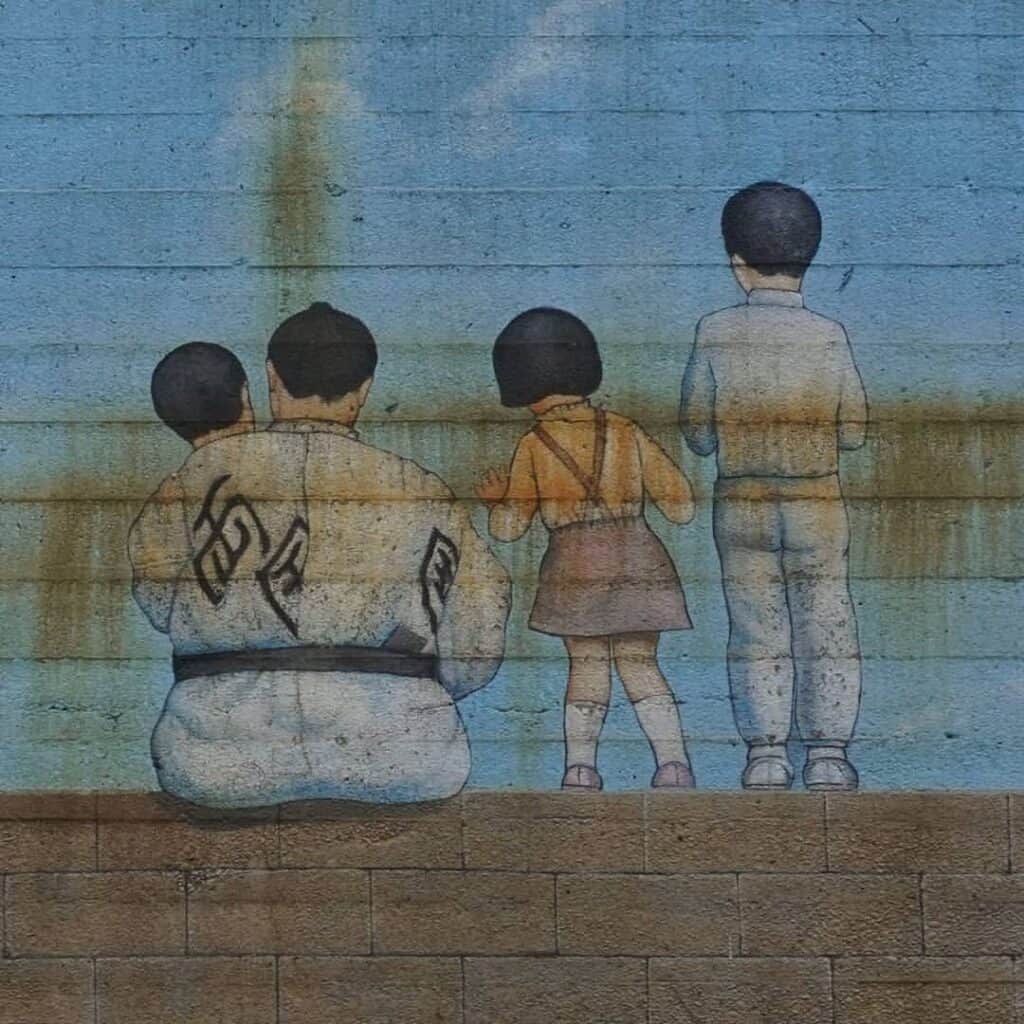

Sumo wrestlers usually start at a young age and are expected to live in accordance with centuries-old rules. Being a sumo wrestler is more like a way of life for the individual rather than a career. Low-ranking sumo wrestlers live and train at their stables.
When Can Sumo Wrestlers Marry?
While the Japanese culture has changed in many ways, some things remain the same, and in some things, the Japanese remain traditional. After all, there are many things that make their culture unique compared to others.
Unlike Geisha who are not allowed to marry, the answer to the question “do sumo wrestlers marry?” is yes. There’s no strict timeline that dictates when a sumo wrestler can get married, it’s all about career progression. Sumo wrestling is split into 6 different divisions and only those in the highest divisions get married, and make their wives a sumo wrestler wife. Rishiki, the Japanese term for a sumo wrestler, is considered in-training while in the bottom 4 divisions.
Only wrestlers in the top two divisions, Makuuchi and Jūryō, are considered true professionals of the sport. There are around 700 sumo wrestlers in Japan, of which only 42 compete in the top division of Makuuchi. 28 sumo wrestlers fill out the second division, Jūryō. The remaining four divisions are where the remaining rishiki will compete.
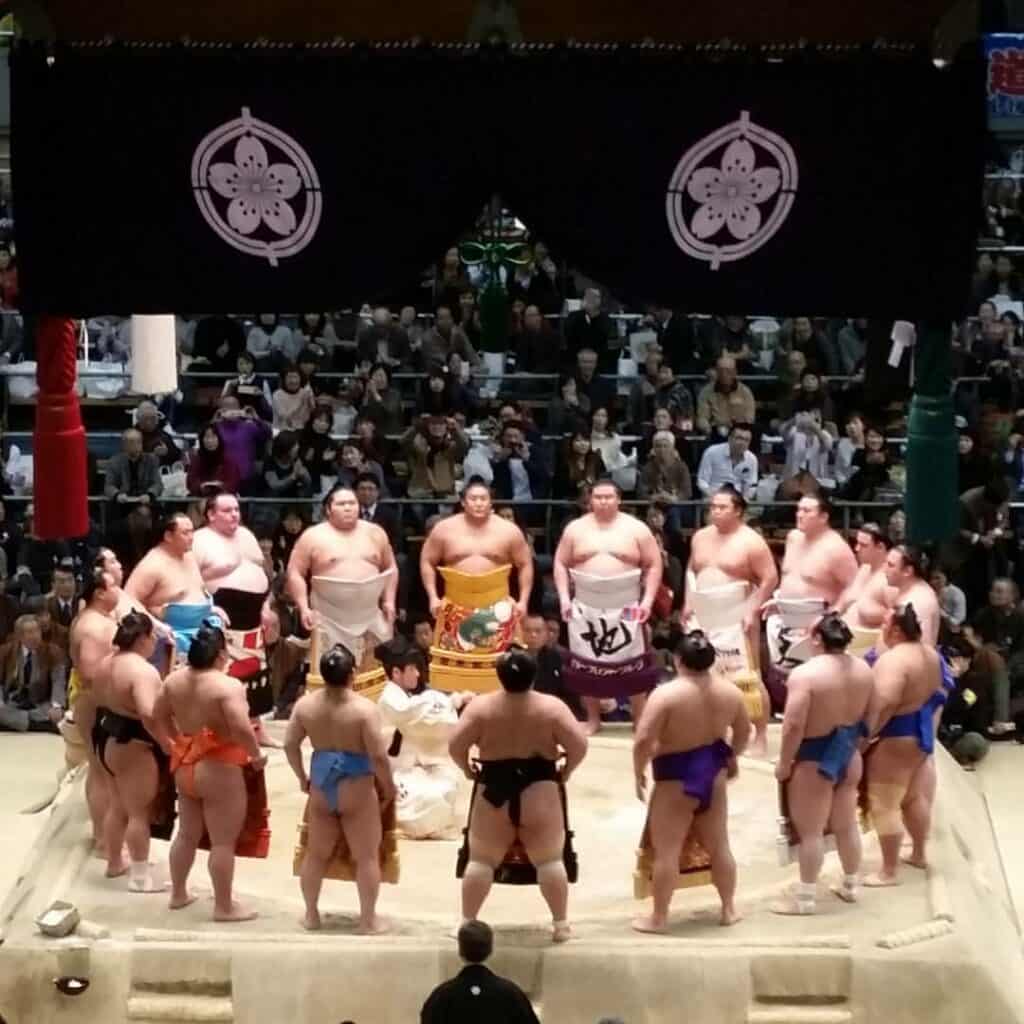
Once a rishiki has progressed far enough in their career that they are competing in the top two divisions, their way of life will change. At this point in their career, they will start earning a full salary instead of a small allowance. They will be allowed to move out of their training stable if they wish, although this is not mandatory.
So, to answer the question – do sumo wrestlers get married, they can also get married at this point if they want to and they can have kids. The difference in these lifestyles of having a sumo wife or not is considered to be like heaven and hell.
A rishiki who reaches the top two divisions is known as sekitori to distinguish the two. Sekitori is also given a couple of lower-ranked rishiki as their personal assistants. It’s common for generous sekitori to spend some of their earnings on their assistants as an acknowledgment of their uncompensated hard work during training.
What Happens If A Sumo Wrestler Drops Below the Second Division?
Top-ranked wrestlers are afforded many privileges that lower-ranking wrestlers do not get. As with any ranked competitive sport, their position can drop. Their ranking is based purely on the number of wins, so a sudden bad spell of losses could see your division change.
The good news for rishiki that drop division is that no one is going to force them to get divorced. However, what will change is how much time you can spend with your family. Rishiki considered to be in-training usually have a much more hectic schedule, that will include cooking and cleaning in their stable.
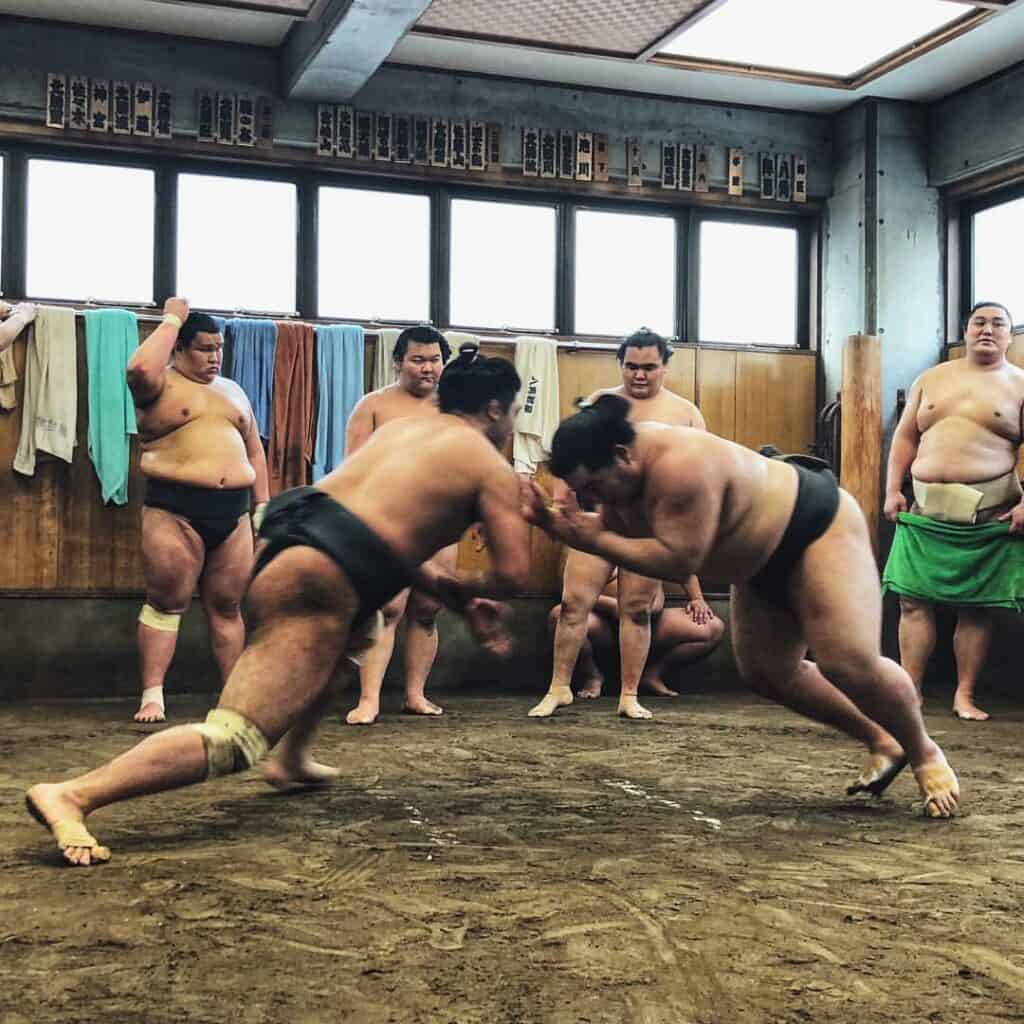
Alongside less time to see the family, a drop from division 2 to 3 will see their salary slashed significantly which isn’t good news for sumo wrestler wives. Rishiki is only given room and board plus a small allowance to live on. Going from a full salary to this small allowance will mean the sumo wives and the whole family might struggle.
The wife may have to look for additional sources of income. As a sumo wrestler’s life will be all-encompassed by sumo, finding an additional source of income will likely fall to the wife. With enough wins under their belt, a sumo wrestler can work his way back into the top two divisions and start receiving a salary again.
Can Sumo Wrestlers Retire?
Yes, sumo wrestlers can retire and they usually retire quite young. Training as sumo wrestlers is very grueling work and not everyone is good enough to make it to the top divisions. With this realization, many rishiki will retire by their mid-20s as they won’t be able to make a living wage.
Even the most successful sekitori tend to retire by their early 30s. The added pressure of having children means they need to stay in the top divisions to earn money. Once a sumo wrestler drops from these divisions and fails to get back up they may retire to look for paid work.
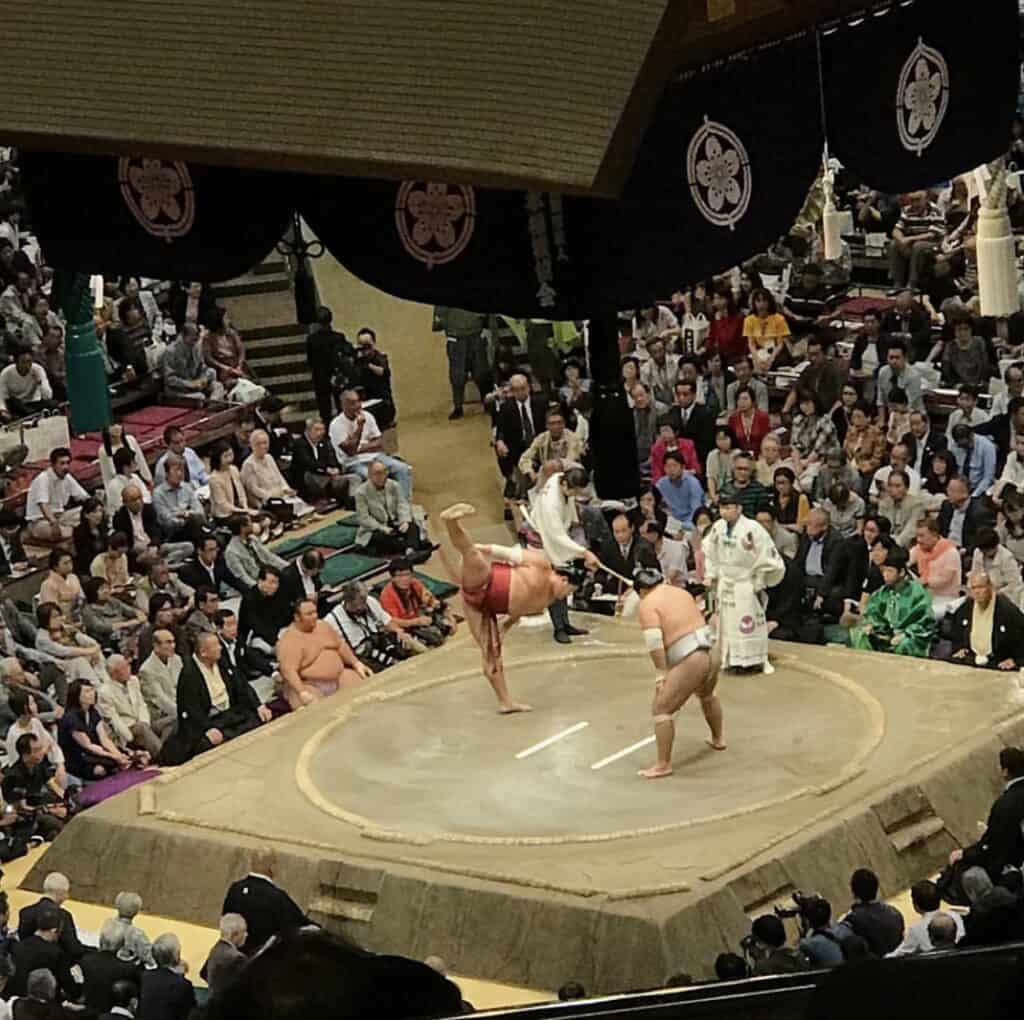
At the very top of the ranking, the wrestlers are known as yokozuna. The trend among yokozuna is to retire early as well to preserve their legacy. Yokozuna is expected to perform at the very highest levels every time they are in the ring.
If they have too many losing bouts in a row they will opt to retire with honor. Yokozuna rarely keeps wrestling past their 20s.
With all that said, there are outliers who can continue to wrestle until much later in life. While uncommon, there’s no rule that says you must retire after a certain time.
What Do Sumo Wrestlers Do After Retirement?
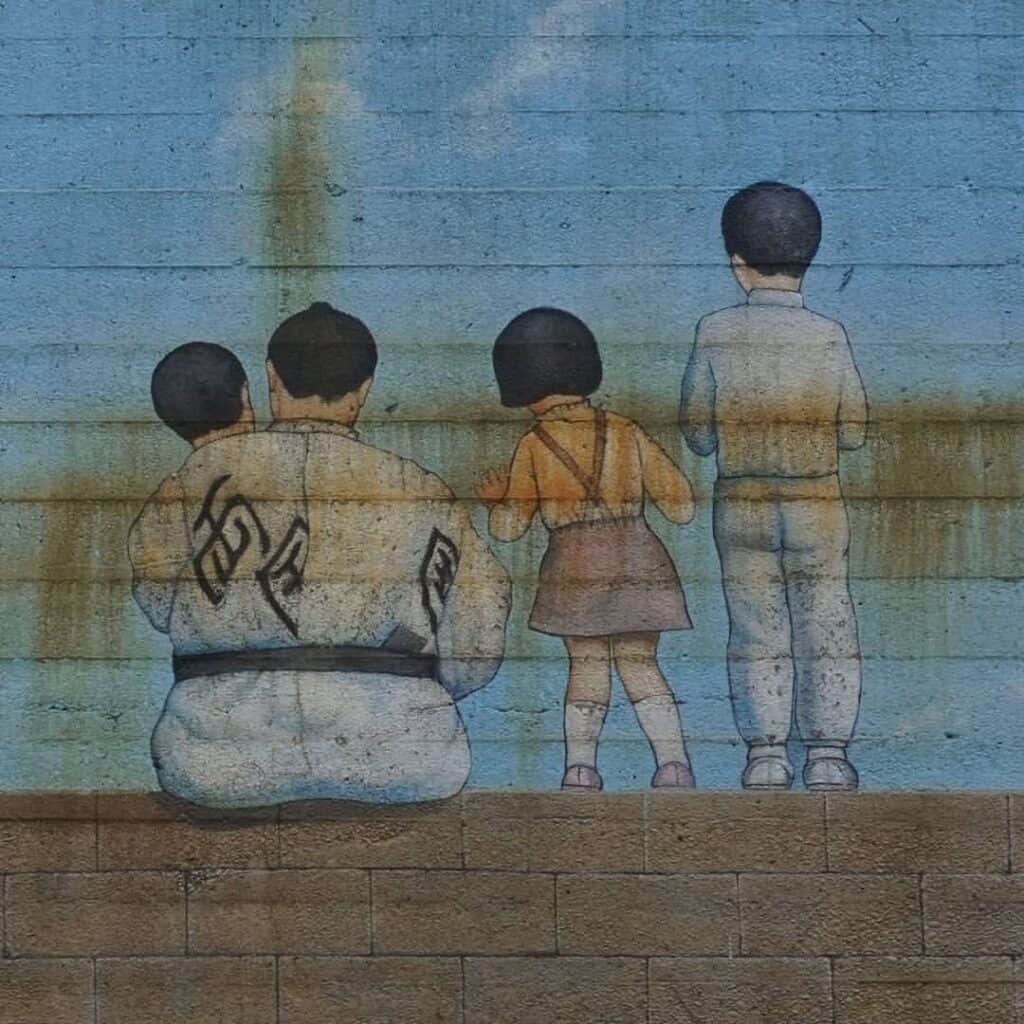
The sumo wrestlers that rank at the highest level can apply to be a sumo elder known as a toshiyori. This is an amazing opportunity as it is the only way former wrestlers will get retirement pay.
The opportunity to become a sumo elder is only open to Japanese citizens, no foreign wrestlers will be eligible. As a sumo elder, you will be able to coach and run a sumo stable, bringing up the next generation of rishiki.
Keeping in the tradition of ranking, even sumo elders are subject to rank. A toshiyori only refers to the lowest rank. The first set of promotions happen based on seniority while the highest rankings of fuku-riji and riji are nomination based.
Rishiki that aren’t eligible to become toshiyori still go on to have excellent careers. One of the most popular career moves is to become a chef and open a restaurant. In fact, sumo wrestlers are known for being fantastic cooks as it is one of the first things they learn during training!





